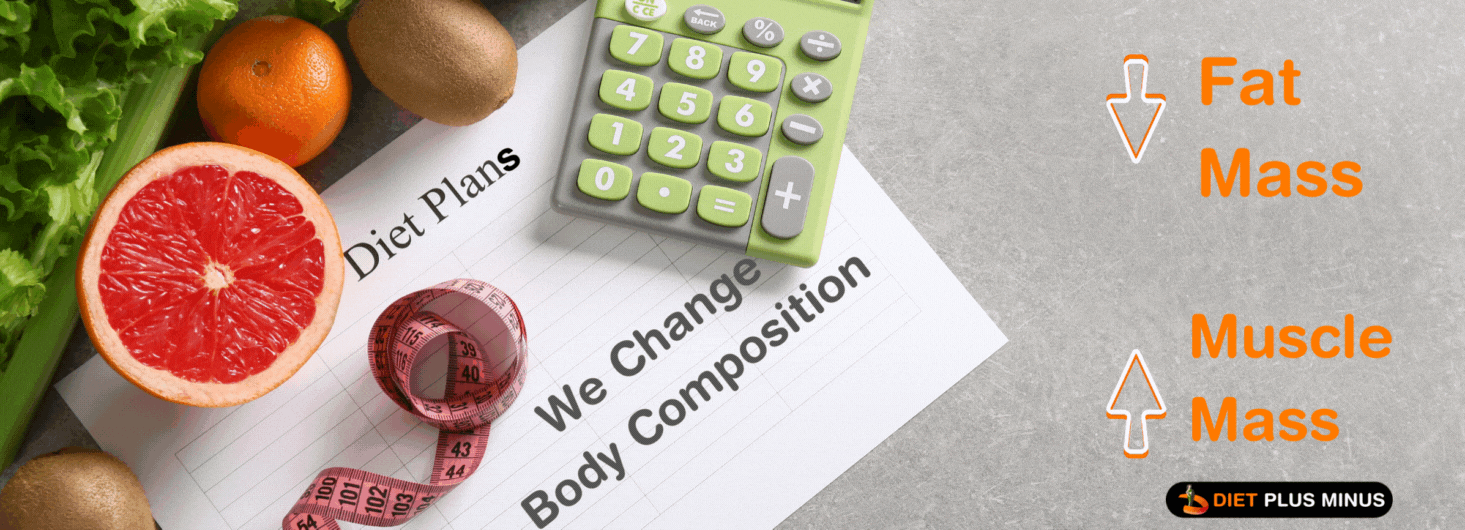
Every plan focuses on practical, sustainable change. You receive a personalized diet and activity guide, habit coaching, and timely reviews—so you always know what to do next. Choose a structure that matches your current needs and the amount of accountability you prefer.

| Duration | Price | |
| Nutritional assessment only | 999 | |
| Nutritional assessment with diet plan | 1999 |
| Duration | Price | |
| Express checkout |
The word nutrition itself means "the process of nourishing or being nourished, especially the process by which we assimilate food and use it for growth and replacement of tissues".
Nutrients are substances that are essential to life and must be supplied by food. A majority of the population is deficient in one nutrient or the other but the amazing fact is that most of them aren't even aware of it! At DietPlusMinus, we take your blood test to do your nutritional assessment and study your body profile. After a detailed study of your body profile and tests thoroughly, we prepare scientific diet charts and exercise plans just for you!
Today more than ever, obtaining nutritional knowledge can make a big difference in lives. Air, soil, and water pollution in addition to modern farming techniques have depleted soils of vital minerals. The widespread use of food additives, chemicals, sugar, and unhealthy fats in diets contributes to many of the degenerative diseases of the day such as cancer, heart disease, arthritis, and osteoporosis.
The nutritional care process begins with a nutritional assessment. Nutrition assessment is the evaluation of an individual’s nutritional status and nutrient requirements. It is a systematic process of obtaining, verifying, and interpreting data to make decisions about the nature and cause of nutrition-related problems. The purpose of nutrition assessment is to:
1. Obtain adequate information to identify nutrition-related problems.
2. Define accurately an individual’s nutritional status
3. Determine the level of nutritional support that individuals need, and
4. Monitor changes in the nutritional status and the effect of nutritional intervention
A stands for Anthropometric measures: It measures growth in children and shows changes in weight in all populations that can reflect diseases and help to monitor progress in fat loss or gain.
B stands for Biochemical investigations: These help to reveal nutrients and metabolites in blood and/ or urine, and /or feces that indicate an infection or a disease.
|
ABCD analysis for Nutritional Assessment |
|
|---|---|
|
A |
Anthropometric measures |
|
B |
Biochemical investigations |
|
C |
Clinical analysis |
|
D |
Diet history and nutrient intake |
C stands for Clinical analysis: This analysis includes a complete physical examination and a medical history. The physical examination begins with the patient’s general appearance. Nutrition-oriented aspects of the physical examination focus on the skin, hair, head, eyes, mouth, nails, extremities, abdomen, skeletal muscle, and fat stores.
D stands for Diet history and nutrient intake: This is used to evaluate diet for nutrient or food intake. Common methods used include the 24-hour diet recall, diet history, food frequency questionnaire, weighment method, etc.
Once you’ve reached your goal weight and are looking towards transitioning towards a normal way of eating after weight loss, it is more difficult to navigate food choices. The most successful way to maintain your weight loss is by making lifestyle changes that work for you. The transition from dieting to regular eating needs some precautions as most of the time it is a difficult task.
Normally after achieving desired weight or getting revealed a painful symptom, people return to their pre-packaged diet and also lifestyle. It can make the situation even more drastic. So, at DietPlusMinus, we have a maintenance diet plan for you.
Note: Plans provide lifestyle guidance. Medication changes are overseen by your treating physician. Pricing/inclusions may vary by promotions.
Read More
Read More
Read More